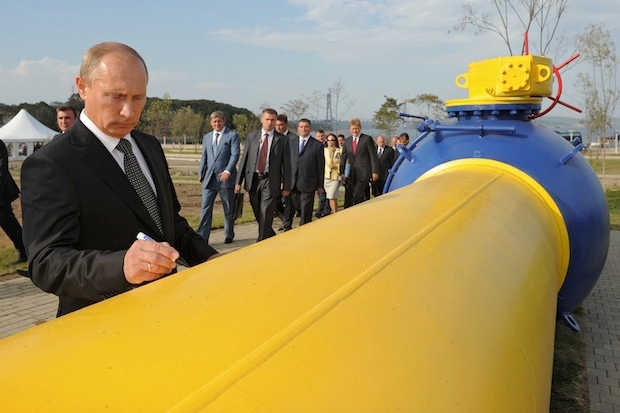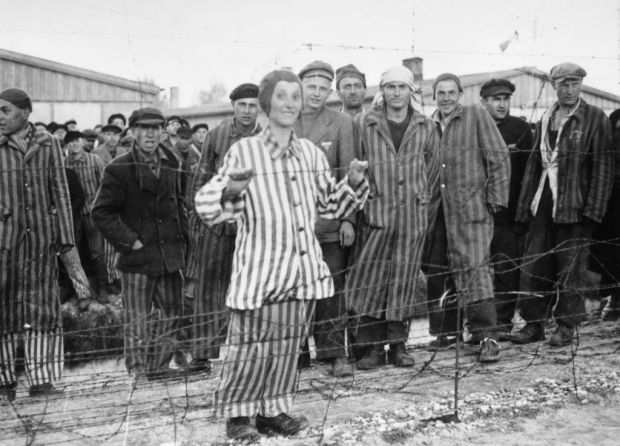So, Nord Stream 2 will not be plugged into Germany’s gas grid. A little surprisingly, Chancellor Olaf Scholz has been first out of the blocks this morning in the western economic response to Putin’s recognition of breakaway states in eastern Ukraine. The block is not total: what Scholz says is that the certification process for the pipeline will be halted — leaving open the possibility that it might, after all, be connected if Putin starts to behave himself, or Germany becomes especially desperate for gas. Nevertheless, it is a significant move which will have an economic impact on Russia.
But it is astonishing that the project was ever allowed to come this far in the first place. It ought to have been obvious from the beginning that Nord Stream 2 was rather more than just an infrastructure improvement: it looked almost designed to put western Europe and Germany exactly in the incurably vulnerable position it is in now.
Britain, though, has hardly approached the problem of dependence on Russian gas much better. It should have been clear that when we started to phase out coal we would, in the short term at least, become more reliant on gas. We can absorb a certain amount of wind and solar into the electricity grid but only so long as we have gas plants which can make up for when the wind isn’t blowing and the sun isn’t shining. We do not have anywhere near enough energy storage to cope with the problem and neither are we likely to have an affordable means of mass energy storage for the foreseeable future.
We could and should have accompanied the phase-out of coal power by exploiting our gas reserves more: those in the North Sea and also the shale gas which underlie parts of Britain. According to the more pessimistic estimates of the British Geological Survey there is enough shale gas below Britain to supply our needs, at current rates of usage, for at least 47 years. Yet the North Sea drilling has been allowed to run down, while the government imposed an indefinite moratorium on fracking shale gas in 2019, saying it was not possible to calculate the risk of small ‘earthquakes’ (actually minor tremors).
The government tries to reassure us that Britain imports little Russian gas, and obtains most supplies from the North Sea or from pipelines via Norway and the Netherlands. In 2020, 5 percent of our direct gas imports came from Russia, mostly in the form of liquified natural gas delivered by ships. Yet that misunderstands the situation: Britain is at the western end of a European grid which depends on large quantities of Russian gas being fed in at the eastern end. So, although little Russian gas might make it to Britain, that doesn’t mean we are not dependent on it: if you cut off the Russian gas flowing into eastern Europe, Britain couldn’t carry on drawing off gas at the western end as if nothing had happened — there would be severe shortages in the whole grid.
We will hear, no doubt, of more sanctions against Russia in due course, but Britain, like all of western Europe, would be in a much stronger position if it had not allowed climate policy to take precedence over geopolitics.
Got something to add? Join the discussion and comment below.
Get 10 issues for just $10
Subscribe to The Spectator Australia today for the next 10 magazine issues, plus full online access, for just $10.





















Comments
Don't miss out
Join the conversation with other Spectator Australia readers. Subscribe to leave a comment.
SUBSCRIBEAlready a subscriber? Log in